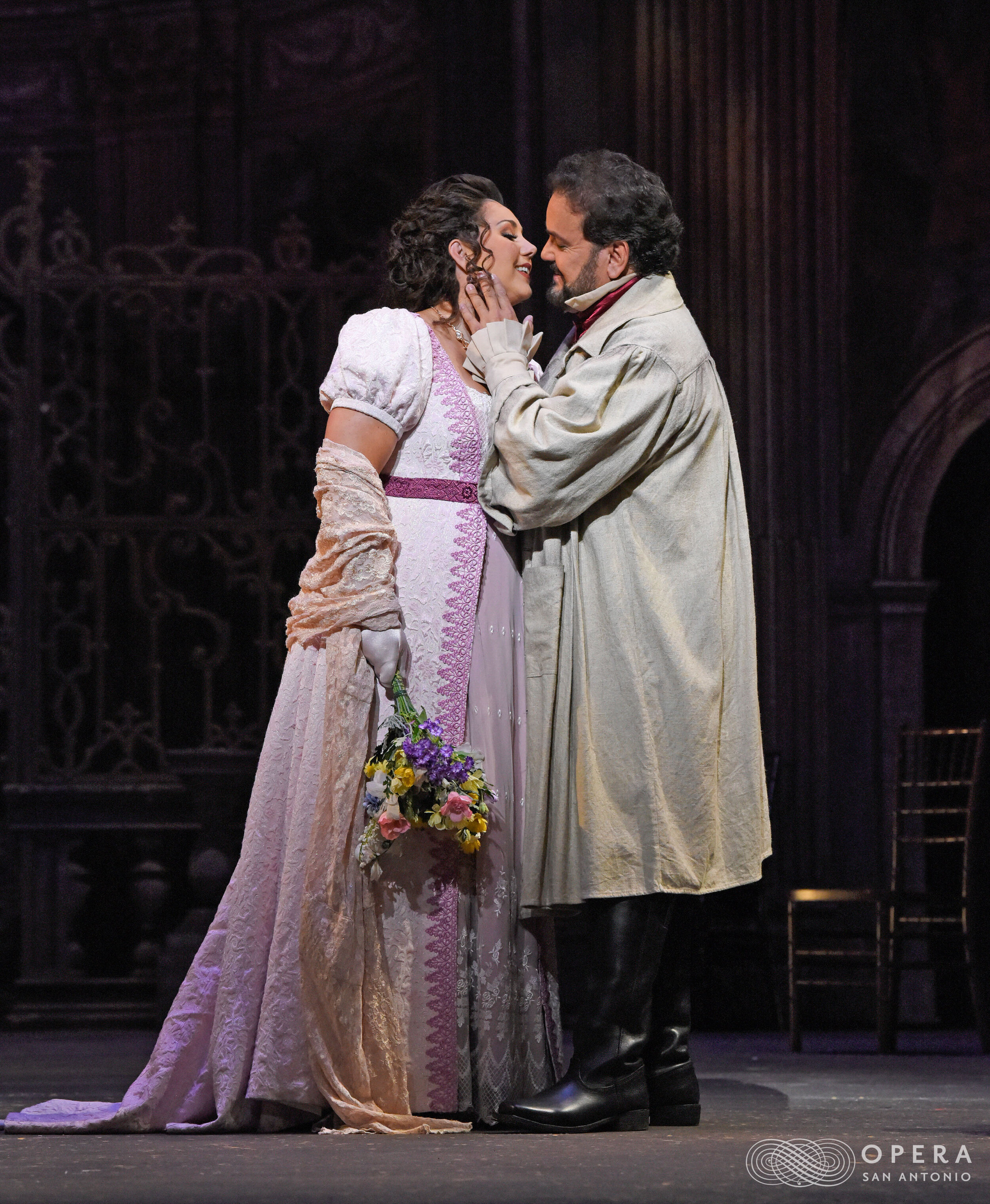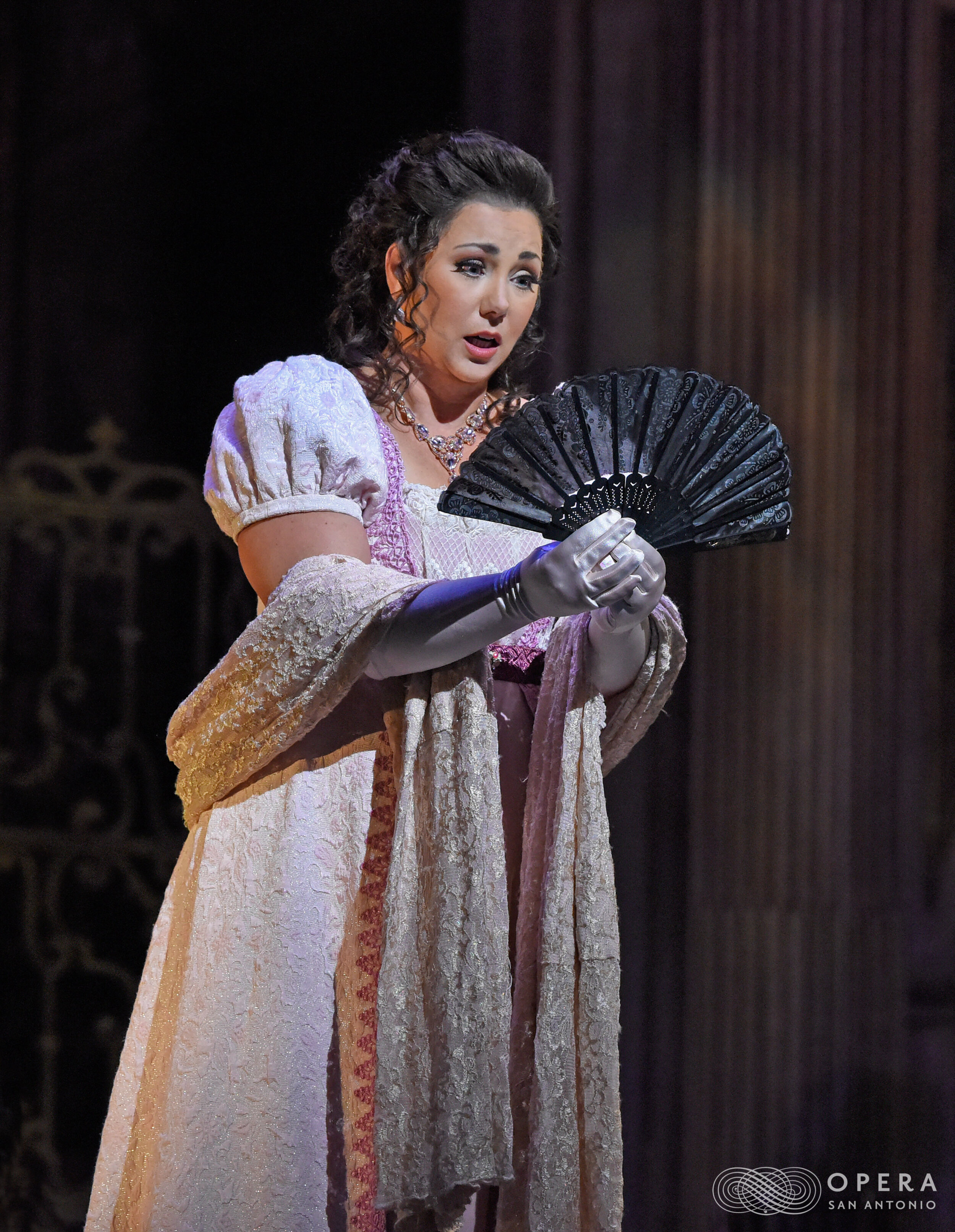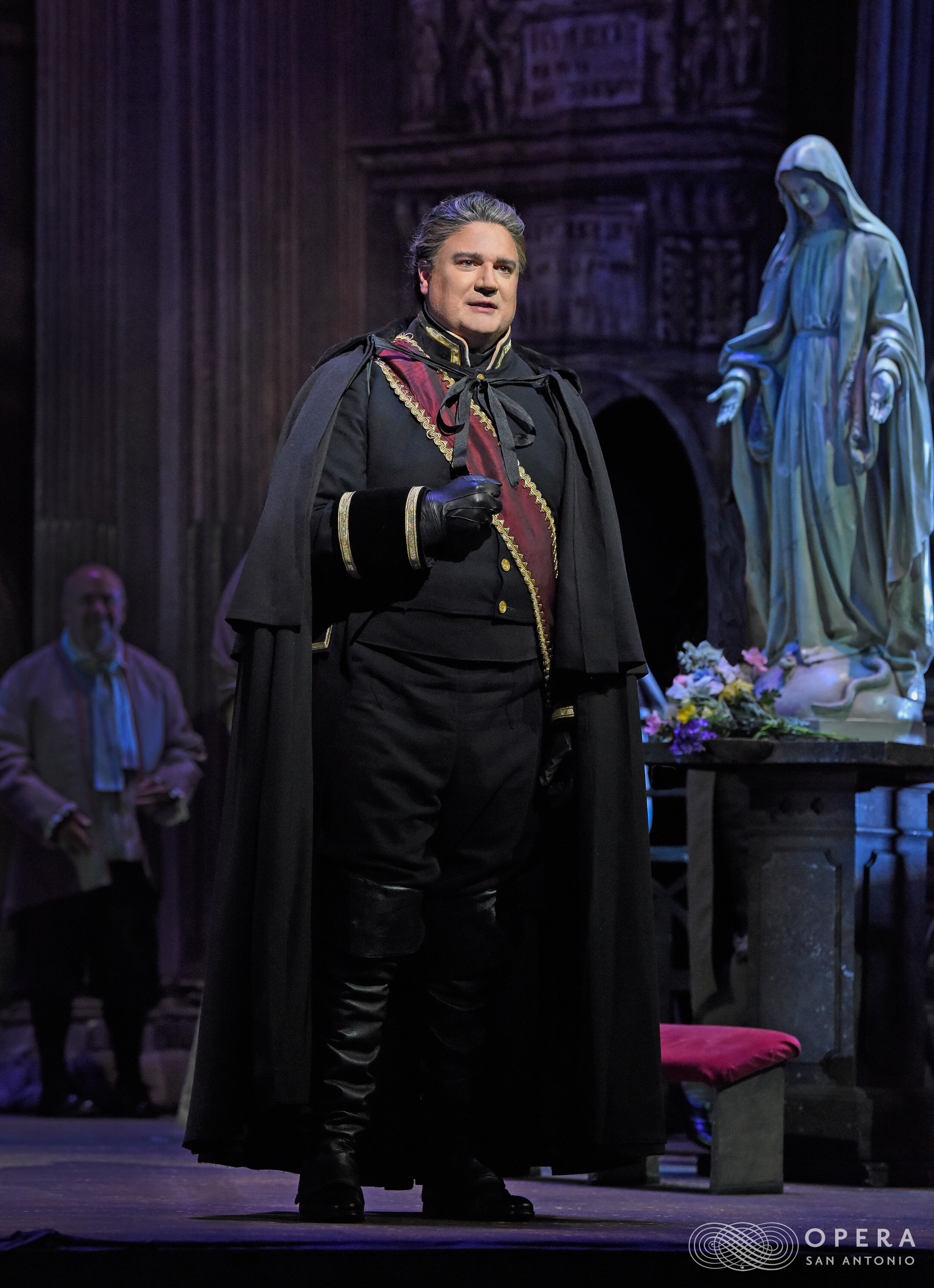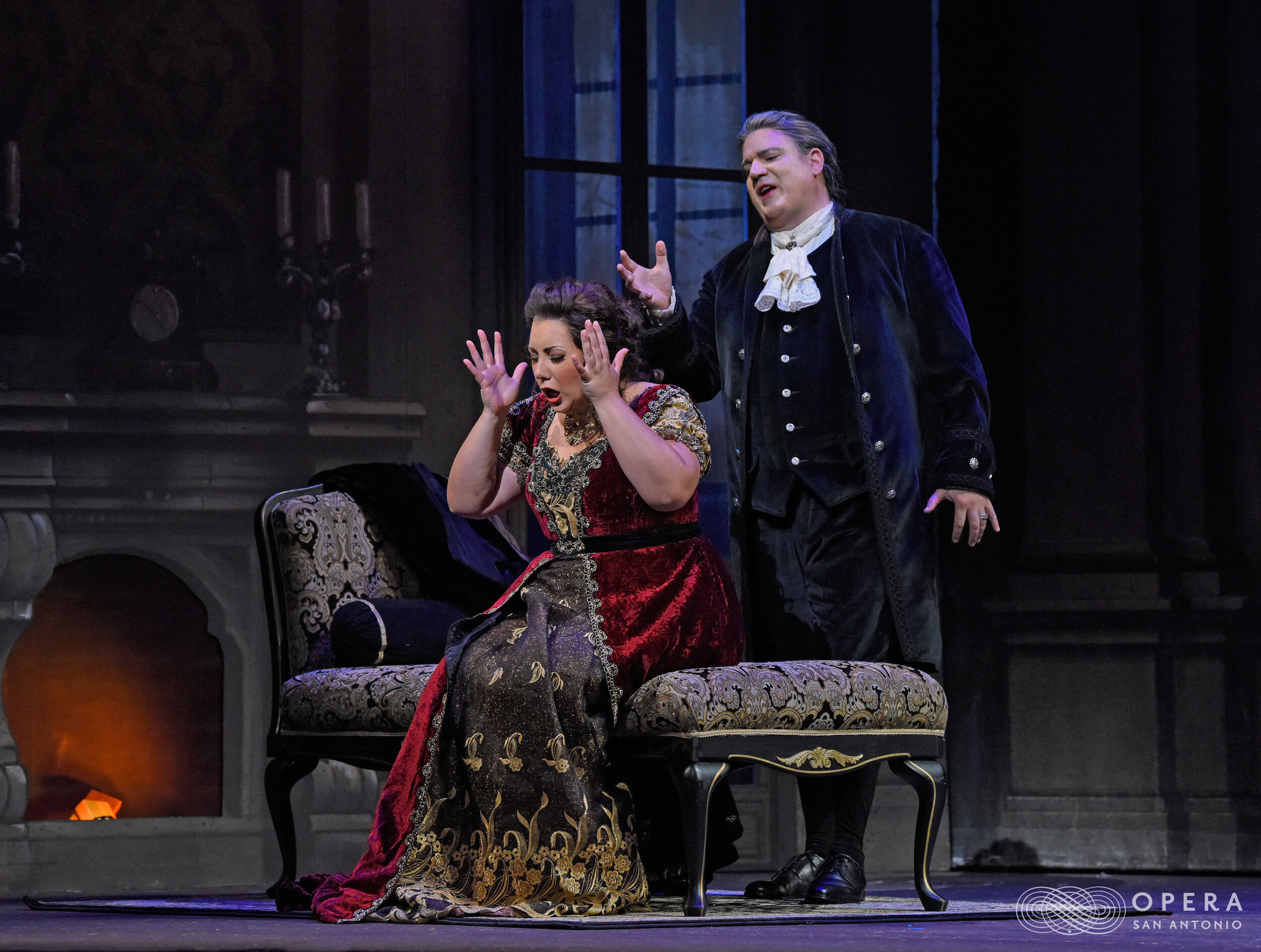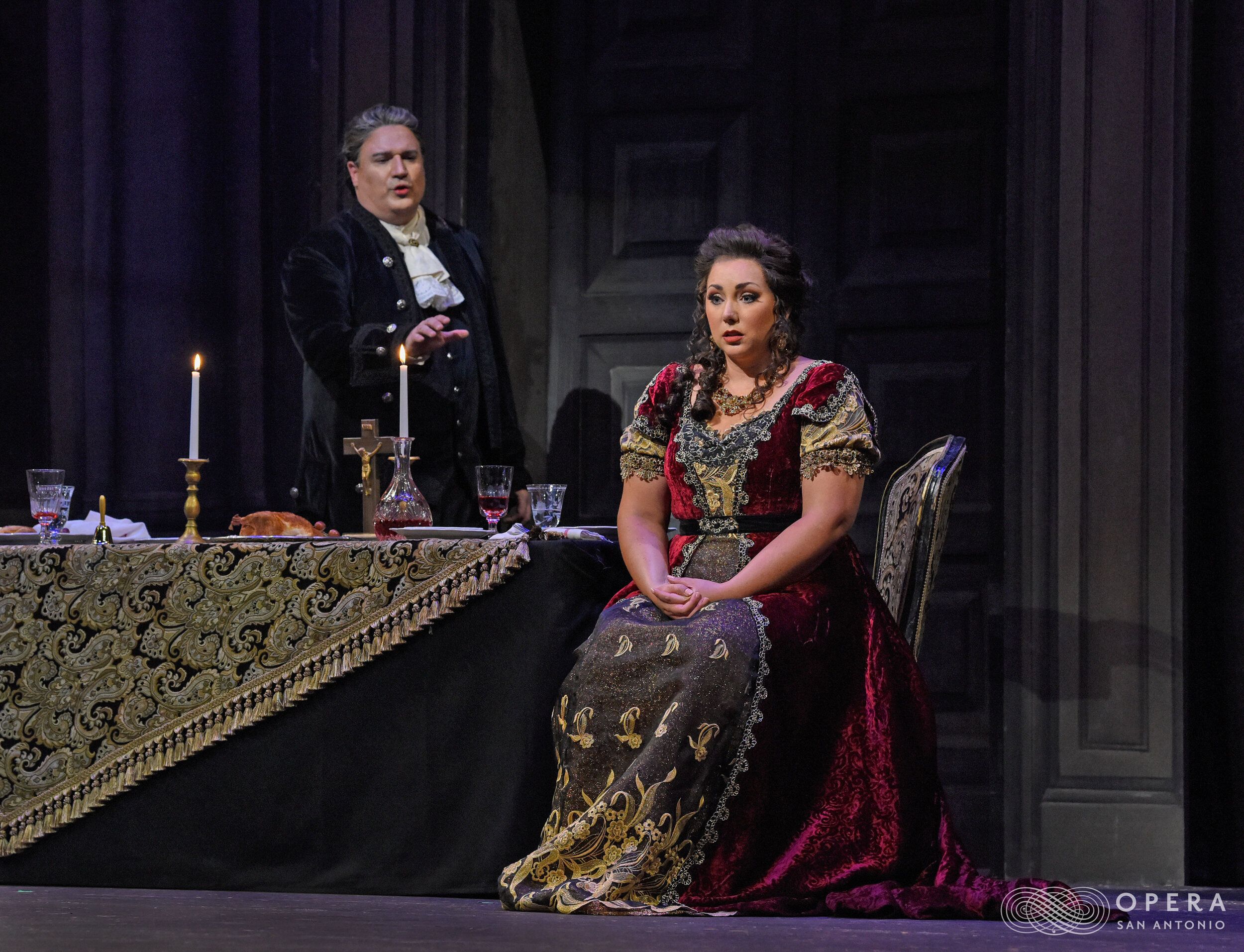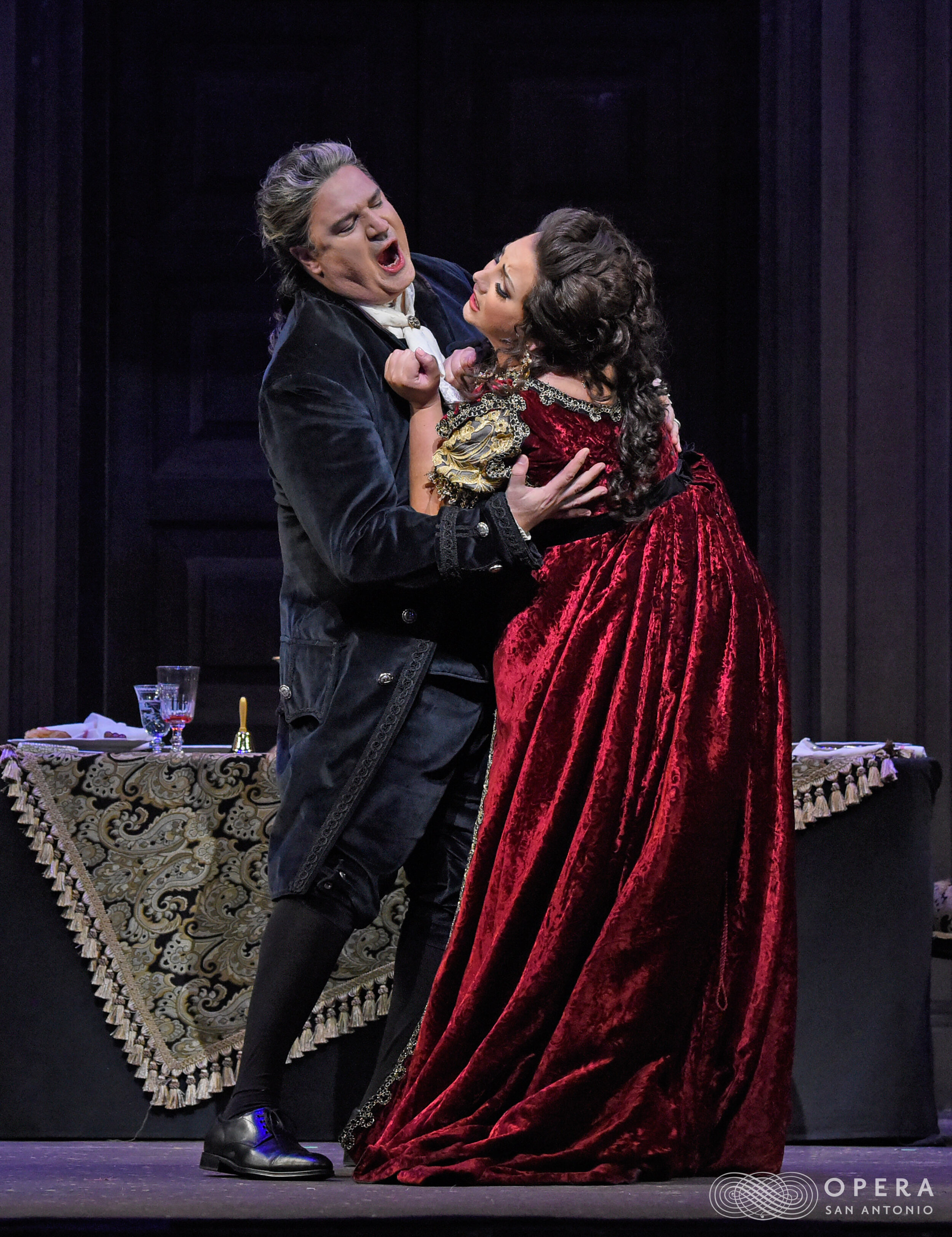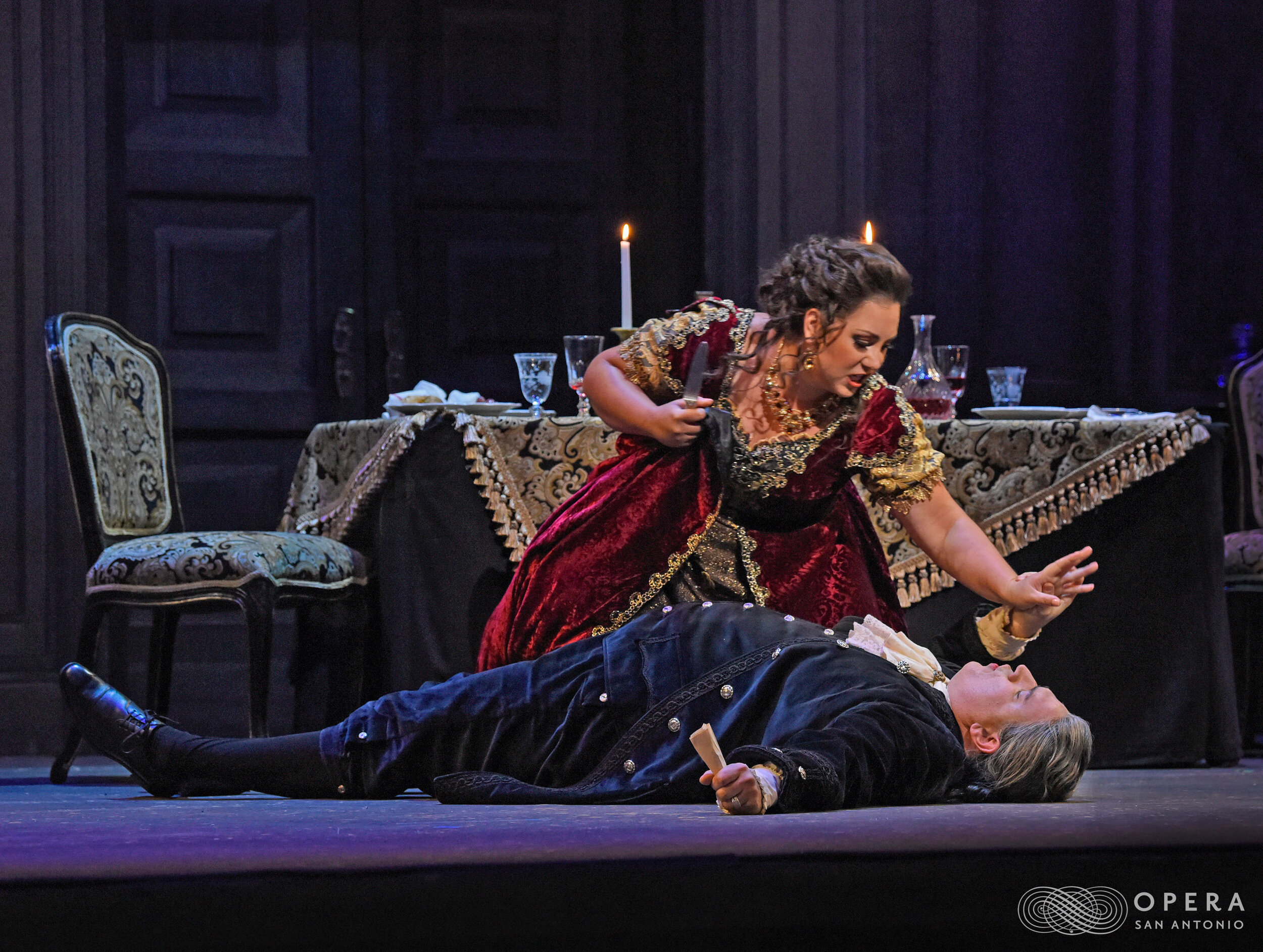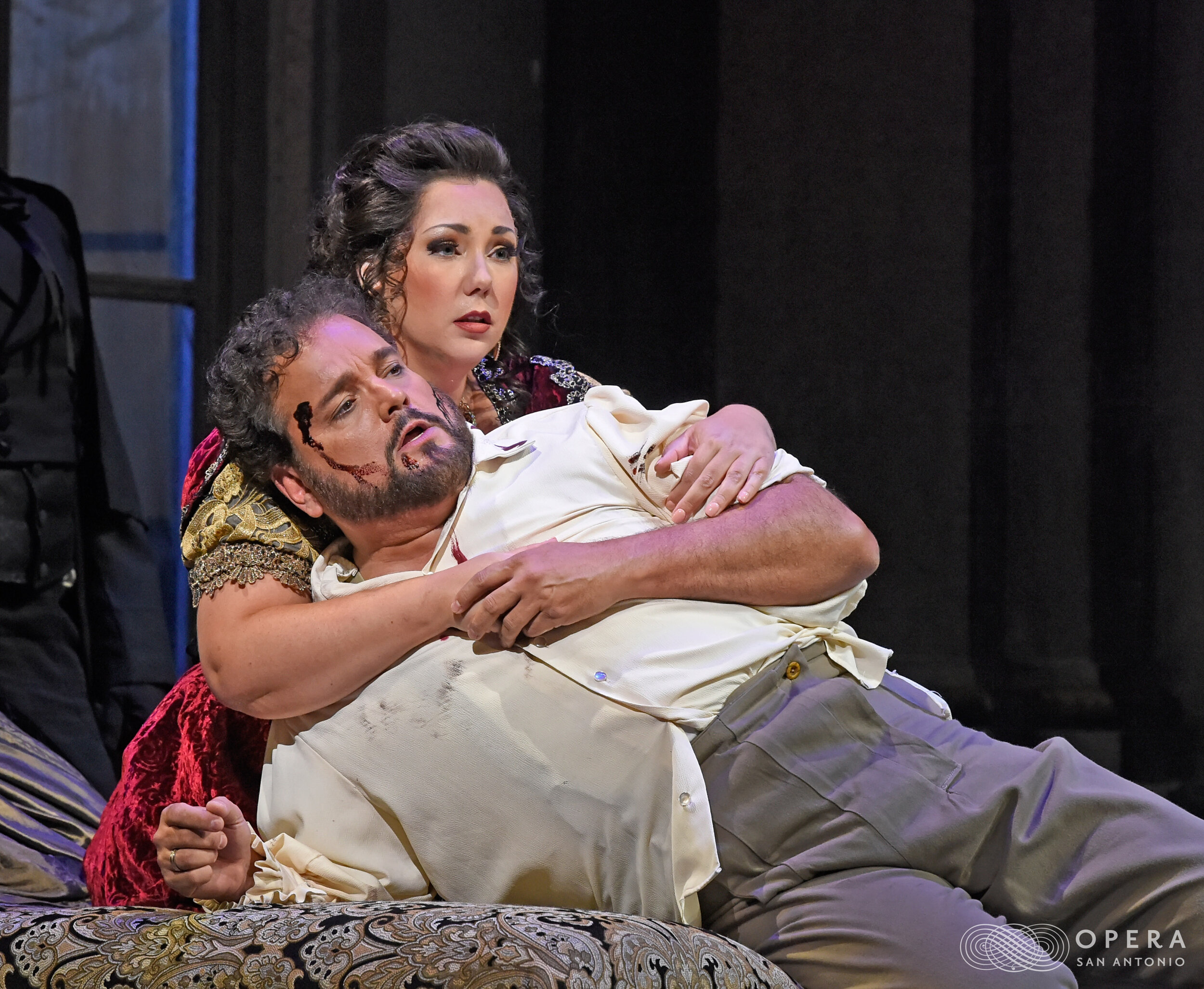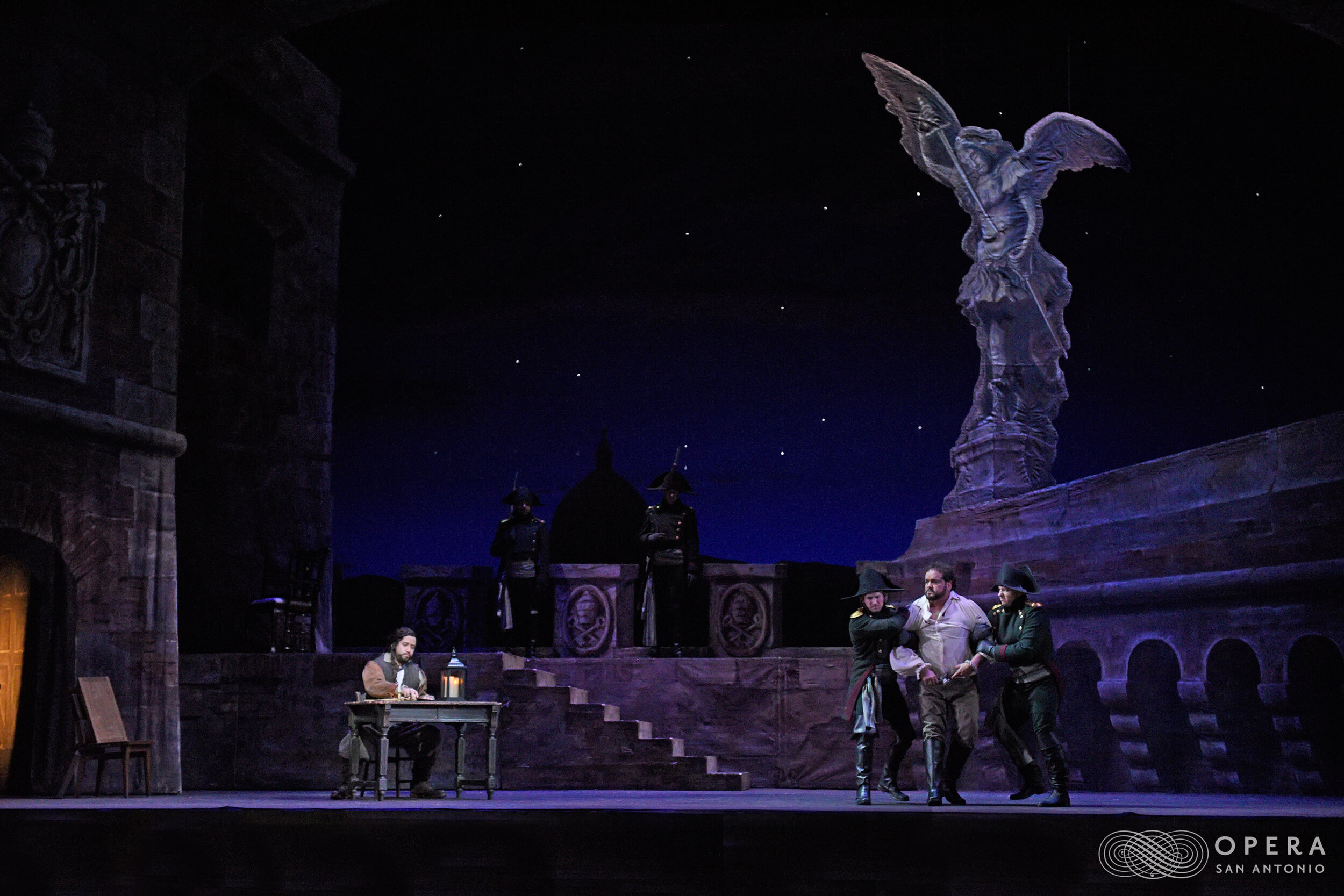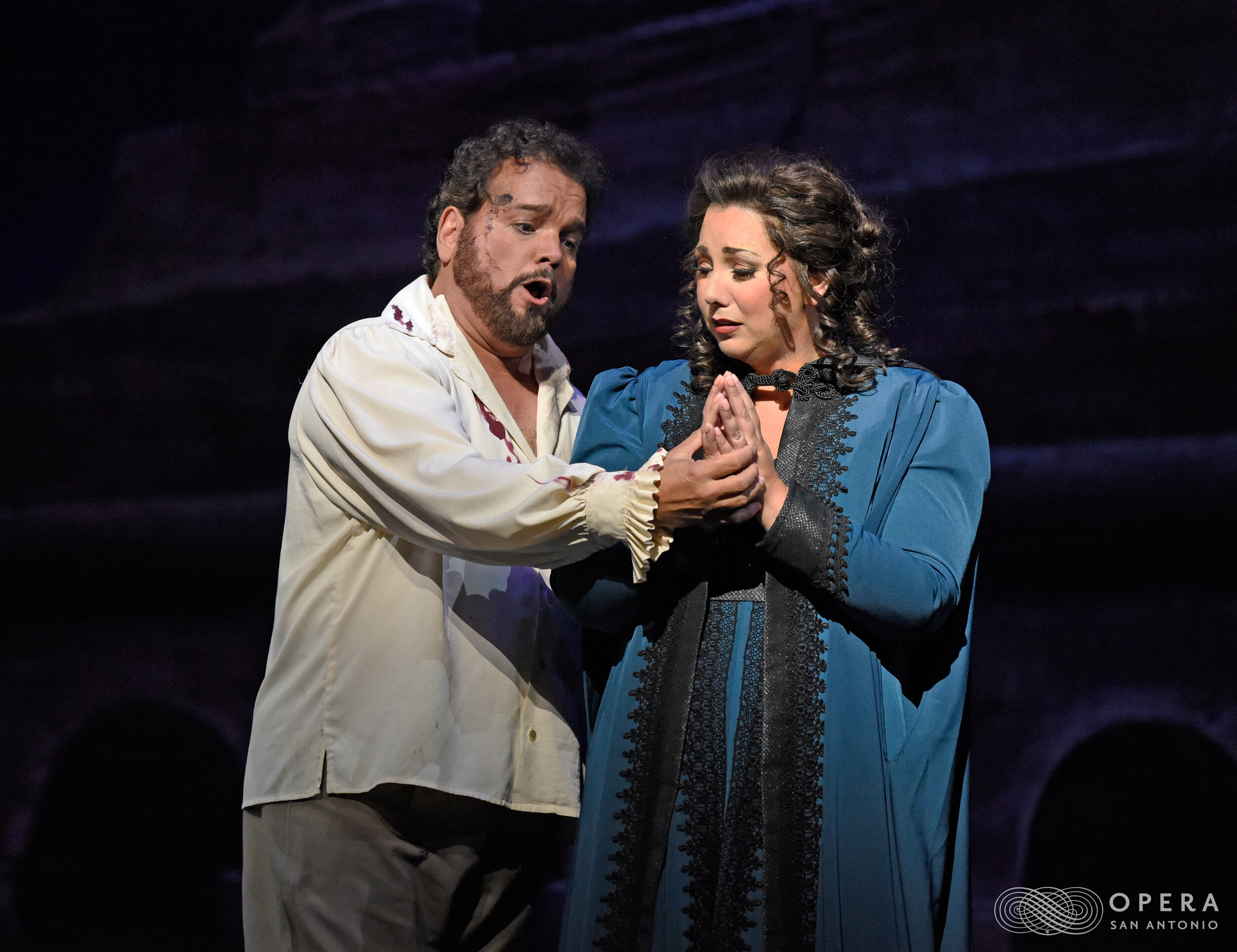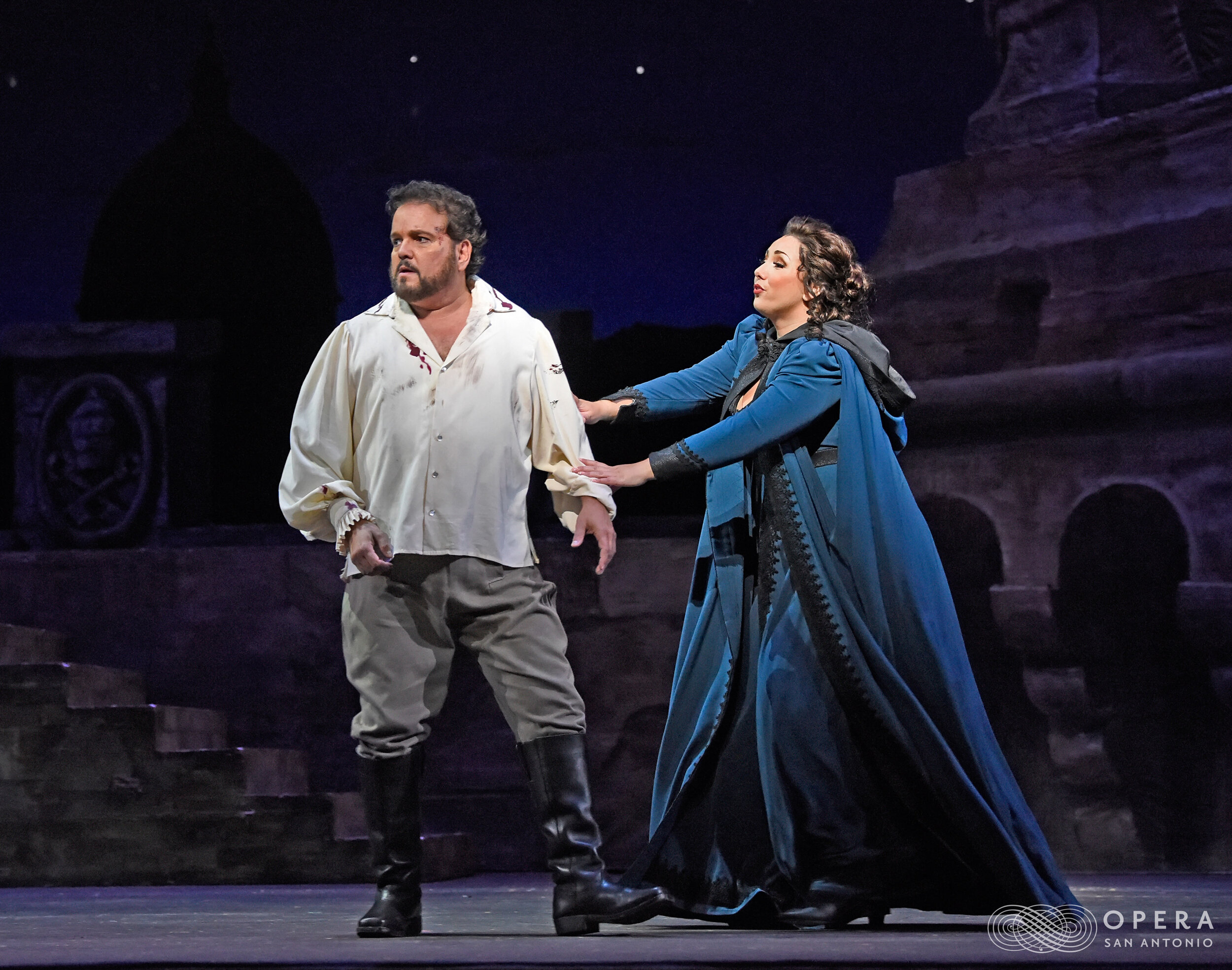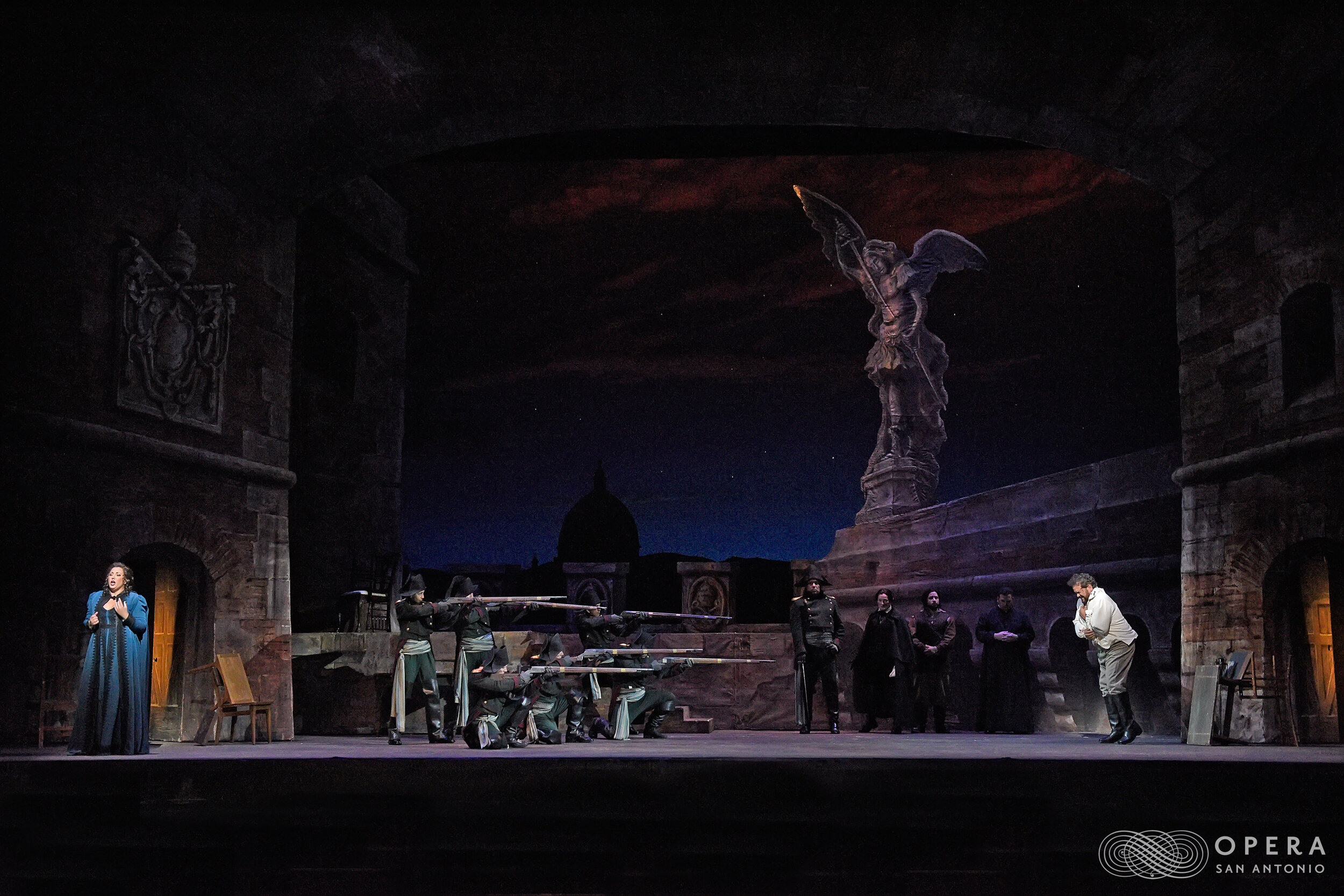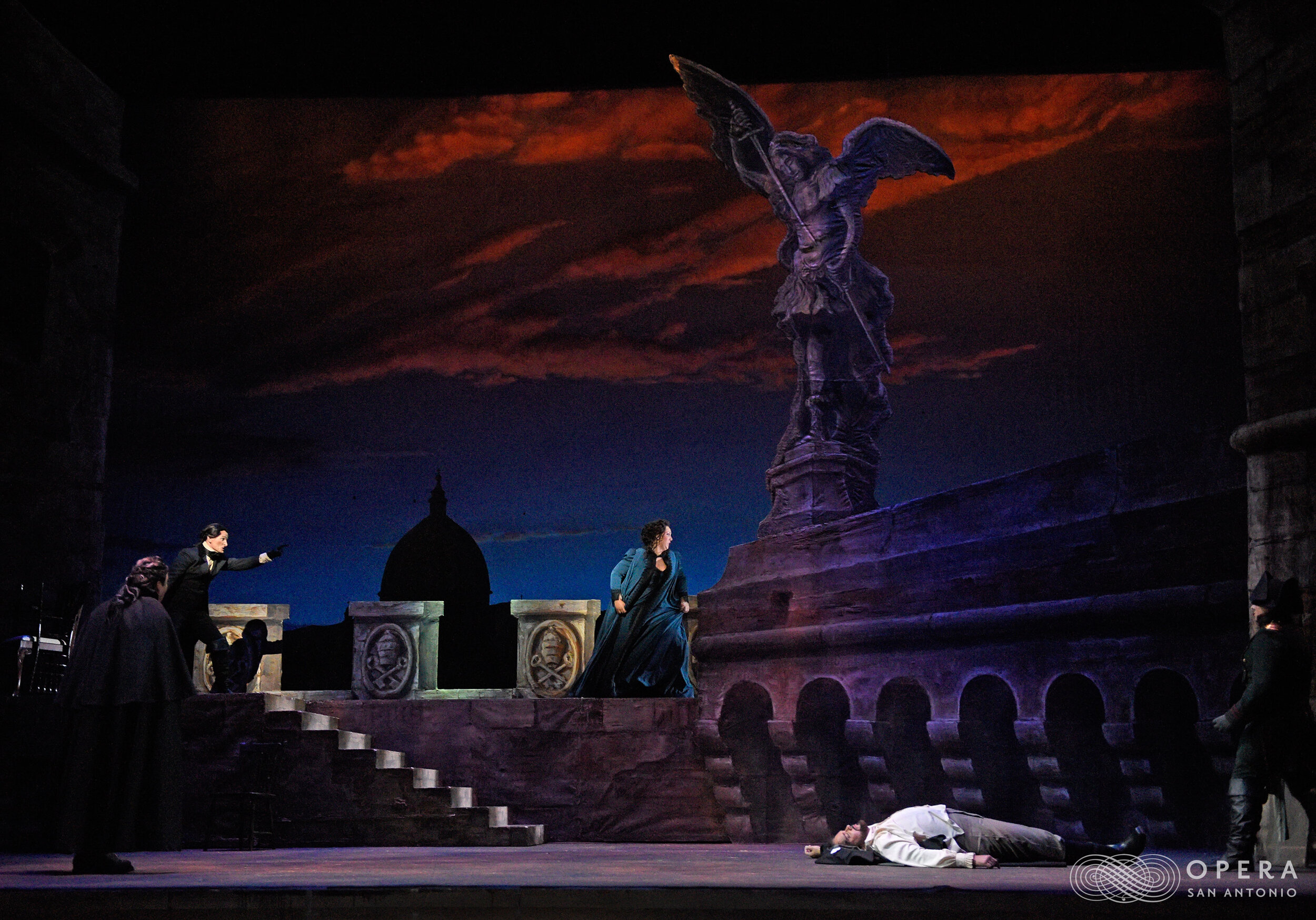Tosca
August 25, 2020 | 7:00 P.M.
“Tuesday Night at the opera”
Texas Public Radio
BROADCAST (kpac)
Overview
Puccini's operatic masterpiece, Tosca, is a tragedy of a great actress who has "lived for art." Because of her love for the young artist revolutionary Cavaradossi, she falls victim to the evil machinations of Scarpia, head of the secret police.
News:
A Tosca Performed at It’s Melodramatic Best
September 12, 2019
Puccini’s Tosca Opens Opera Season
September 11, 2019
OPERA San Antonio Opens Season With Tosca
September, 2019
OPERA San Antonio’s Tosca to Take Audience on an ‘Emotional Journey’
September 10, 2019
Tosca Opera
August 30, 2019
Jennifer Rowley Headlines OPERA San Antonio’s Tosca
August 3, 2019
The Case for Community: Why It’s A Thrilling Time To Be A Female Artist
July, 2019
Photo Credit: Karen Almond
Cast and Creative
Story
Rome, June 1800
After Napoleon’s troops occupied Rome and Naples many Italians, including Cesare Angelotti, adopted Napoleon’s libertarian ideals and founded the Roman Republic. King Ferdinand IV of Sicily then began a counter-offensive, forcing the French first from Naples and then from Rome where he established a secret police force led by Baron Scarpia. Scarpia has deemed Angelotti a traitor and imprisoned him.
ACT I
Cesare Angelotti, having escaped from prison, rushes into the Church of Sant’Andrea della Valle. After finding the key his sister has hidden for him, he hides in his family’s private chapel. The church’s sacristan is amazed that Mario Cavaradossi is not busy with the painting of Mary Magdalene. Cavaradossi appears and reveals that the painting has been inspired by Angelotti’s sister, the Marchesa Attavanti. Angelotti emerges from the chapel as the sacristan leaves and recognizes his friend and fellow Republican-sympathizer, Cavaradossi, who promises to help the cause. Floria Tosca, Cavaradossi’s lover, calls to him from outside the church and Angelotti hides once more.
When Cavaradossi lets her into the church, Tosca jealously asks to whom he has been talking and reminds him of their rendezvous that evening. Suddenly recognizing the Marchesa Attavanti in the painting, she accuses him of being unfaithful, but he assures her of his love. Once Tosca has left, Angelotti again comes out of hiding. A cannon signals that the police have discovered his escape, and he and Cavaradossi flee to the painter’s home. The sacristan arrives with news of the defeat of Napoleon’s troops at Marengo. He tells the choir that that festivities will include a Te Deum in the church and a cantata with Floria Tosca as the soloist in the Palazzo Farnese. At the height of their excitement, Scarpia arrives searching for Angelotti. Just as he finds women’s clothing and a fan with the Attavanti crest in the chapel, Tosca returns to cancel her meeting with Cavaradossi. Scarpia shows her the fan which successfully ignites her suspicions about Cavaradossi’s infidelity. Tosca rushes off to Cavaradossi’s villa with a fearful mix of emotions and is unknowingly followed by the secret police. While the congregation intones the Te Deum, Scarpia declares that he will bend Tosca to his will.
ACT II
That evening Scarpia is enjoying a meal in his chambers at the Palazzo Farnese when his spy Spoletta arrives with news that he was unable to find Angelotti. Instead, he brings in Cavaradossi. Scarpia interrogates the defiant painter while Tosca sings at a royal gala in the palace courtyard. Scarpia sends for Tosca and she appears just as Cavaradossi is being taken away to be tortured. Frightened by Scarpia’s questions and Cavaradossi’s screams, Tosca reveals Angelotti’s hiding place. Having the information they need, the torturers stop and the badly beaten Cavaradossi furiously confronts Tosca just as the officer Sciarrone rushes in to announce that Napoleon has actually won the battle at Marengo. Cavaradossi bursts into a triumphal song and Scarpia orders him to be executed. Alone with Tosca, Scarpia calmly suggests that he would let Cavaradossi go free if she’d give herself to him for a night. Tosca is shocked to the core but finally agrees, only to have Scarpia tell her that Cavaradossi must undergo a mock execution as part of the deal. Tosca demands that Scarpia write them a passage of safe-conduct. After he has done so, he attempts to make love to Tosca, but she grabs a knife from the table and stabs him. She takes the pass and flees.
ACT III
At dawn, Cavaradossi awaits execution on the ramparts of Castel Sant’Angelo. He bribes the jailer to deliver a farewell letter to Tosca, and then, overcome with emotion, gives in to his despair. Tosca appears and explains what has happened. The two imagine their future in freedom. As the execution squad arrives, Tosca implores Cavaradossi to fake his death convincingly, then watches from a distance. The soldiers fire and depart. When Cavaradossi doesn’t move, Tosca realizes that the execution was real and Scarpia had betrayed her. Scarpia’s men rush in to arrest her, but she cries out that she will meet Scarpia before God and leaps from the battlement.

